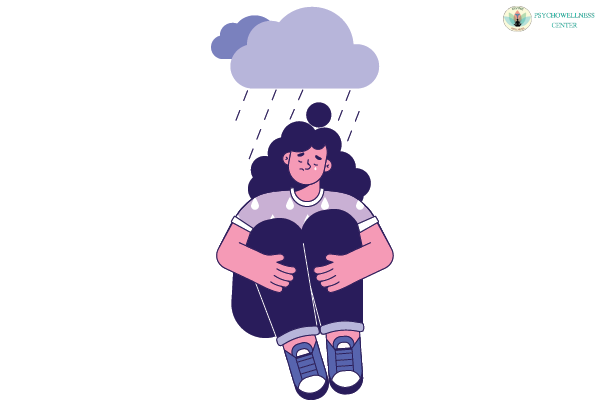Single Parenting

There are numerous reasons why someone
could want to be a single or lone parent. You might have made the decision to
raise a family on your own, you might be divorced or separated, or the other
parent might have passed away.
If you are a single parent, you might be
concerned about your ability to provide the supportive, loving environment your
child needs. The good news is that you unquestionably can.
Depending on their circumstances, single
parents endure a variety of difficulties, but most single-parent households
also have some universal problems. To learn more about single parenting
challenges and how to overcome them, seek Online Parenting Counselling from
the best counsellor at TalktoAngel
Asia’s No. 1 Online Parental Counselling Platform.
Children thrive when their parents are
responsive, nurturing, warm, sensitive, and flexible. No matter how many
parents people have in their lives, this is true.
No matter how your family is structured, you can support your child's healthy growth and development by:
- Pondering how to accommodate your
child's needs
- Maintaining composure and controlling
your own feelings and reactions
- Acquiring knowledge that boosts your
parenting confidence
- Obtaining assistance from friends and
family.
There are many ways that single
parenting differs from dual parenting, but the parent's interactions with the child tend to be the most
noticeable.
In dual-parent homes, decisions on how
to run the home are typically made by both parents, however, in single-parent households,
decisions about holidays or significant family purchases may be more likely to
be made with the children. In fact, this can be a good thing because it helps a
child's emotional and cognitive growth and gives them a sense of involvement in
family decisions. Other typical variations include:
Simply because there isn't another adult
present, children of single parents may have greater responsibility in the home
from a younger age.
Trying to fulfill the responsibilities of
two parents while being the only person and source of money can be difficult
for single parents. This chore might cause many people to feel exhausted
because it is demanding and impractical.
Family structures are getting more complicated. Whether you're a single parent, a member of a two-parent family, or belong to one of the many different sorts of families, you can feel good about your parenting if:
- Most of the time, you feel secure in
your parenting.
- You're worried about raising your
children well.
- You ask friends and relatives to help
you out with parenting.
There are many different ways a family
can appear, and a loving household built by only one parent is entirely
acceptable.
Your child will feel safe and cherished if they have a good relationship with you. With any changes in your family situation, this may assist them to adjust. You will feel better also if you have a good relationship.
Negative
Effects Of Single Parenting
1. Financial Troubles & pain points.
2. Low or inadequate quality Parenting.
3. Loneliness in Children after a Divorce
or demise
4. Emotional Problems in child and parent
5. Psychological and Social Loneliness of
partner
6. Adjustment Issues
Positive Effects of Single
Parenting
1. Strong Parent-Child Bonding
2. Strong Sense of Community Engagement
3. Shared Responsibilities are better
learned
4. Early Maturity to both parent and kid,
5. Positive Parental Role Modelling
Here are some suggestions for how to strengthen
your bond with your child.
Make
the most of ordinary occasions.
Anytime and everywhere you want, you can
spend meaningful time with your child. Talk to each other while preparing or
eating dinner. You can sing along while driving, play word games on the bus,
and tell jokes before going to bed.
Express
interest
There are various ways to accomplish this. For instance:
- Discuss your child's interests,
including everything from sports to music to literature to how things operate.
- Ask your youngster to demonstrate their
preferred app or to teach you how to play their preferred game.
- Attend school plays or sporting events
as much as you can.
Pay
your youngster a kind of attention.
Positive attention is expressing warmth
and concern toward your youngster. It might be as easy as giving your child as
many hugs, smiles, and laughs as you can. You can also express to your child
how pleased you are to see them in the morning and after they return from
daycare, kindergarten, or school.
Set
aside one-on-one time
If you have more than one child, try to
schedule regular alone time with each of them. A peaceful game with an older
child after the younger ones are sleeping or reading a book before bed with a
younger child are two options.
Typical issues that single parents deal with include:
- If the parent who is in charge of daily
discipline is absent from the home, the child is more likely to misbehave.
- Being the sole one in the home who
enforces rules can be challenging; you may always feel like the "bad
guy."
- When a youngster or young person
compares their own single-parent situation to that of others who have two
parents, they may find it difficult.
- A lone parent might not have the chance
to discuss concerns, compare thoughts, or compare remedies. Additionally, they
are unable to give the other parent the power to make some decisions on their
behalf.
- Children and teenagers may find it
difficult to adjust to new parental connections as well as changes in a
parent's personal circumstances.
- It is possible for a parent-child
relationship to become too entwined at times, which makes it difficult for both
parties to remain independent. The child may later find it more difficult to
leave home as a result of this.
- The obligations of generating an income,
caring for children, and maintaining the home may leave a single parent with
little to no time for their own self-care.
One-parent families can benefit from things like:
- A child raised in a loving and
supportive single-parent household has no more issues than a youngster raised
in a two-parent household.
- Whether a child spends their leisure
time productively (such as reading or playing sports) depends on discipline,
family routine, and parent-child time, not on whether there are one or two
parents in the home.
- The child is typically responsible and
mature.
- The parent is often independent and
self-assured.
- Parent and child relationships are close.
- Fathers who are single are more likely
than married fathers to employ effective parenting strategies.
- Compared to two-parent families,
single-parent families are less likely to rely on traditional gender-specific
duties.
- When dealing with challenging child
behaviors, single parents frequently turn to constructive problem-solving
techniques rather than punishment or discipline.
Parental Counseling online by
best parenting psychologists, and coaches at TalktoAngel
Asia’s No. 1 Parent Counseling platform help you to understand the emotional needs of the child,
enables you to better understand your needs and limitations, and healthily
address them all. You can also meet in the clinic with best clinical psychologists & parenting coach at Psychowellness
Center, a multilocation clinic at Janakpuri, Dwarka, Vasant Vihar, Gurgaon,
NOIDA, Faridabad, and Delhi NCR
Contributed
by:- Dr
(Prof) R K Suri & Ms.
Aditi Bharadwaj




SHARE